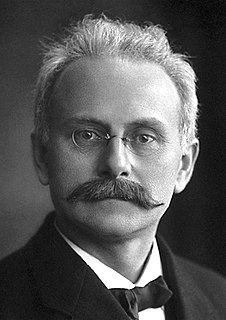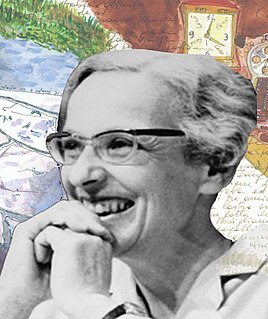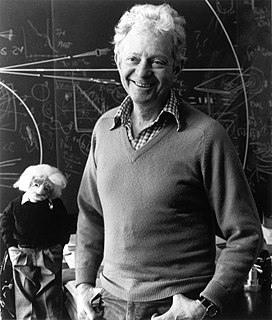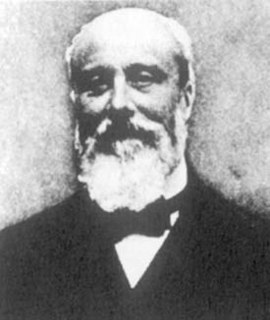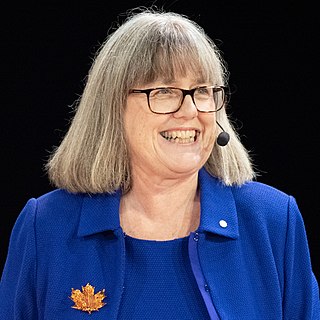A Quote by Johannes Stark
If the experimental physicist has already done a great deal of work in this field, nevertheless the theoretical physicist has still hardly begun to evaluate the experimental material which may lead him to conclusions about the structure of the atom.
Related Quotes
The story is told of Lord Kelvin, a famous Scotch physicist of the last century, that after he had given a lecture on atoms and molecules, one of his students came to him with the question, "Professor, what is your idea of the structure of the atom." "What," said Kelvin, "The structure of the atom? Why, don't you know, the very word 'atom' means the thing that can't be cut. How then can it have a structure?" "That," remarked the facetious young man, "shows the disadvantage of knowing Greek."
My mom is an experimental chemist and physicist, so she is a cut-and-dried, nuts-and-bolts kind of woman, and my dad is a theoretical chemist, so we were definitely raised with his philosophical point of view: imaginary numbers and dimensions beyond our own. That's the kind of thing we would talk about.
A theoretical physicist can spend his entire lifetime missing the intellectual challenge of experimental work, experiencing none of the thrills and dangers - the overhead crane with its ten-ton load, the flashing skull and crossbones and danger, radioactivity signs. A theorist's only real hazard is stabbing himself with a pencil while attacking a bug that crawls out of his calculations.
After finishing the gymnasium in Muenchen with 9 years of Latin and 6 years of ancient Greek, history and philosophy, I decided to become a physicist. The great theoretical physicist Arnold Sommerfeld, an university colleague of my late father, advised me to begin with an apprenticeship in precision mechanics.
I love to read and teach experimental fiction but yes, neither this work nor my first novel is really that experimental. It uses some experimental techniques but in the end, I would not say that it is experimental. I'm not sure why. I do a lot of writing on my own, and I have always just written this way.
There are a lot of experimental novels that test the boundaries of what the novel is, and 'Conversations' is not one of those. It's conventional in its structure, even though its prose style and the themes it explores and the politics that underpin it, maybe, are on the experimental side. Its basic structure is pretty conventional.
Now these two questions Does there exist a material reality distinct from sensible appearances? and What is the nature of reality? do not have their source in experimental method, which is acquainted only with sensible appearances and can discover nothing beyond them. The resolution of these questions transcends the methods used by physics; it is the object of metaphysics. Therefore, if the aim of physical theories is to explain experimental laws, theoretical physics is not an autonomous science; it is subordinate to metaphysics.
The kind of approach I take is different from much of experimental philosophy. Although the experimental philosophers and I are certainly in agreement about the relevance of empirical work to philosophy, a good deal of their work is devoted to understanding features of our folk concepts, and in this respect, at least, I see them as making the same mistake as those armchair philosophers who are interested in conceptual analysis.
